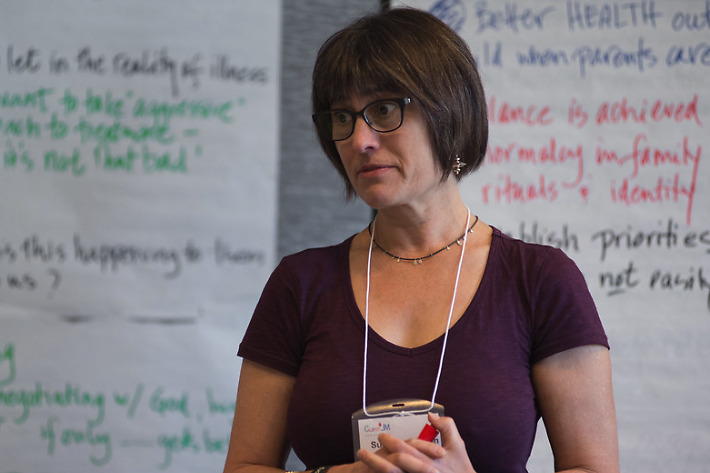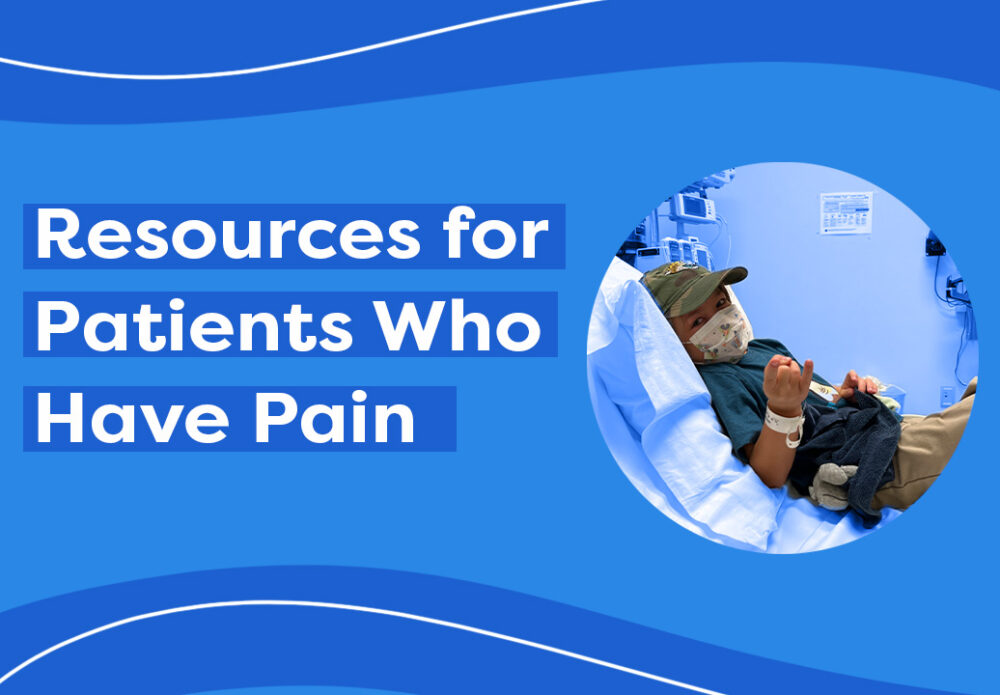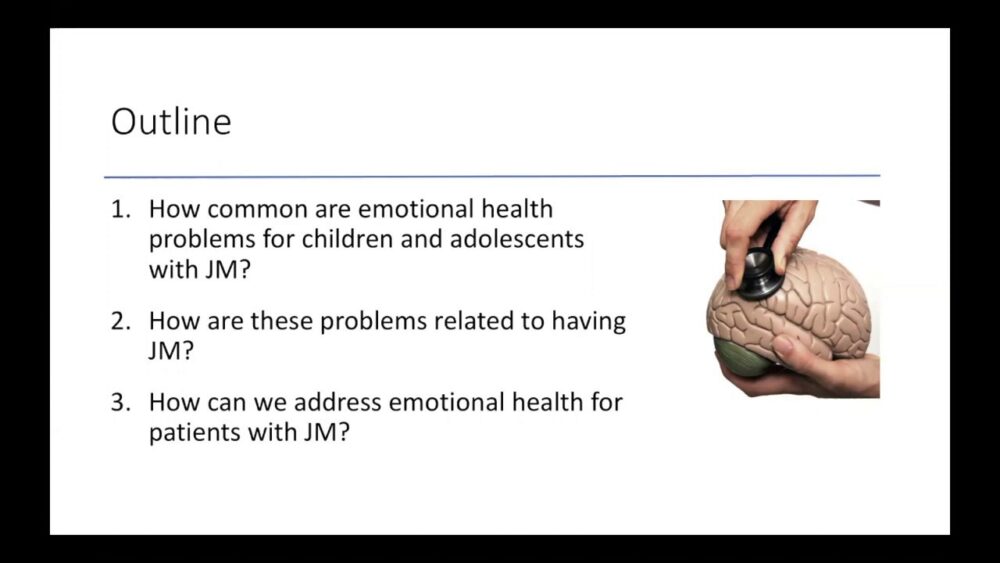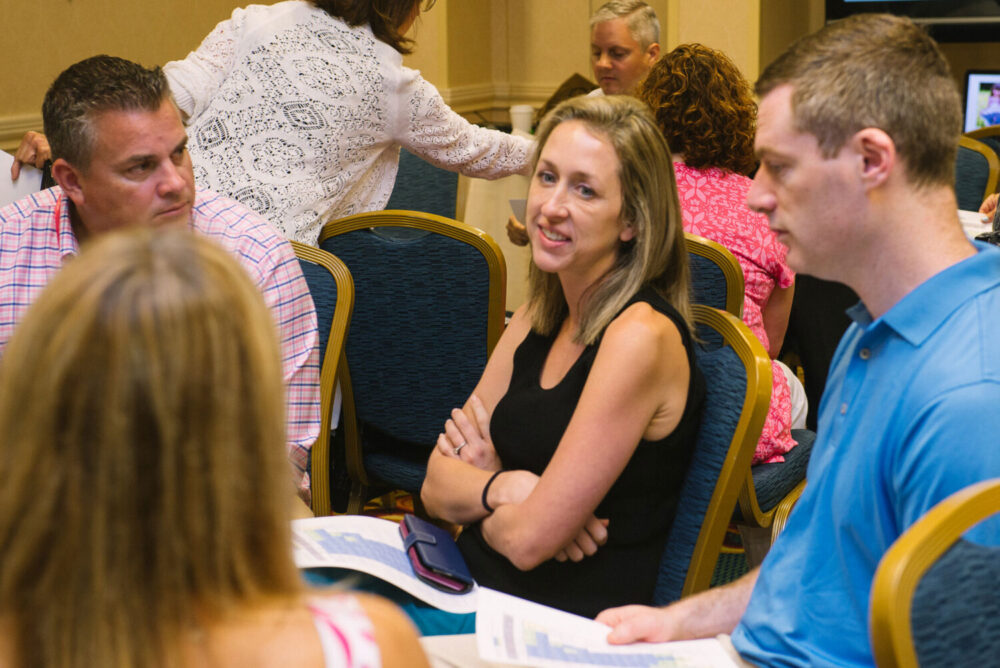JM Families and Medical Professionals
Having a chronic and rare disease is a challenging experience for anyone to go through, and especially difficult for children and adolescents.
To understand how our families cope with mental health, we collaborated with Andrea Knight, MD MSCE, an autoimmune and mental health expert. We surveyed Cure JM patients and parents on the “Mental Health Needs of JM Patients and Potential Interventions” and found that 28% of JM adolescent and young adult patients reported depression and 33% reported anxiety. These percentages are two to three times higher than the 2016 national average of depression in adolescents (12.8%) and young adults (10.9%), according to the National Institute of Mental Health.
Downloadable Flyer: Mental and Emotional Health FAQs for Caregivers
Downloadable Flyer: Emotional Health and JM
Researchers do not know whether mental health problems in JM are caused by the underlying illness (from inflammation and vasculitis), the treatments, genetics, or the challenge of living with a chronic and rare disease. But, we do know that patients, physicians, and researchers rank mental health as an important research priority for Cure JM.
The following information will help you better understand the signs and symptoms of depression and anxiety and how to get help. Please consult a physician if you have any concerns about your child, yourself, or your family.
JM-Related Factors Leading to Depression and Anxiety
- Worrying about flares
- Stress on the family
- Changes in appearance
- Living with chronic disease
- Pain, fatigue, weakness, and disease symptoms can cause depression
- Juggling multiple appointments
- Coping with unpredictability of disease
- Taking multiple medications with psychiatric side effects
- Infusions, injections, procedures, and surgeries can be traumatizing or at a minimum, highly stressful
- Transitioning from pediatric to adult care
- Feeling alone / isolated due to rarity of JM
- Lack of understanding from friends and relatives about JM
Learn the Signs of Depression and Anxiety in Children and Teens
Getting Help
Psychologists
Psychologists have advanced degree in psychology and help people cope effectively with mental health or emotional issues. They generally provide talk therapy (psychotherapy) and other evidence-based therapies, such as cognitive-behavioral therapy techniques. They cannot prescribe medications (except in Louisiana and New Mexico) but frequently work in collaboration with primary care physicians or psychiatrists who can prescribe medications.
Psychiatrists
Psychiatrists are qualified medical doctors specializing in treating mental health issues and disorders. Psychiatrists differ from other mental health professionals in that they may prescribe medications, and they offer additional therapies for severe depression, such as a newer treatment called transcranial magnetic stimulation (TMS). Psychiatrists may also conduct physical examinations and order and interpret lab tests and brain image scans, such as CT scans and MRIs.
Telemedicine
Telemedicine in psychiatry, using video conferencing, is a validated and effective practice of medicine that increases access to care, especially for those with physical limitations or severe anxiety disorders. “The American Psychiatric Association (APA) supports the use of telemedicine as a legitimate component of a mental health delivery system to the extent that its use is in the patient’s best interest and is in compliance with the APA policies on medical ethics and confidentiality.”
Hospital Social Workers
Some hospitals have social workers who help patients, and their families understand their illness, work through the emotions of a diagnosis and treatments, and provide counseling about the decisions that need to be made. Social workers can be essential members of interdisciplinary hospital teams and often provide mental health services.
School Counselors/Psychologist/Social Worker
Many public schools have a full-time or part-time counselor, psychologist, or social worker with who students can talk about social and emotional concerns. These counselors can counsel the students, provide information, and recommend outside referrals.
Antidepressants/Medication
Medications can play a role in treating depression and anxiety, along with “talk therapy.” Antidepressants are commonly used to treat depression and anxiety, with the most popular type called selective serotonin reuptake inhibitors (SSRIs). Cure JM Foundation does not endorse or recommend any particular drug, supplement, or herb. For more information on medications for depression and anxiety, please visit the National Institute of Mental Health.
Support System of Family and Friends
Having family and friends who you can rely on and talk to about your feelings will go a long way in helping you cope with JM.
Support Groups
Joining a support group of people who have been through similar experiences as you can help you feel less alone. Join Cure JM now.
Join a Cure JM Chapter
Cure JM has 15 regional chapters that hold meetings and events.
Learn more about local chapters here.
Attend a Cure JM Conference, Walk, or an Event
Cure JM holds regional and national conferences, as well as regional walks and events, which are a great way to meet others with JM.
Upcoming events
Mindfulness / Meditation / Yoga / Massage
Relaxation techniques can help with stress and depression.
Exercise
Physical activity can help reduce stress and alleviate depression. Consult with a doctor before starting any exercise program.
Watch Exercise is Medicine featuring Sue Maillard, Clinical Specialist Physiotherapist in Pediatric Rheumatology and Musculoskeletal Pain.
Practice Good Sleep Habits
It’s important to get enough sleep, and it helps to go to sleep and wake up on a consistent schedule.
Eat Nutritious Foods
Nutritious foods are important for physical and mental health. Our brains function best when they receive proper fuel. Contact your doctor or hospital social worker to arrange a consultation with a nutritionist.
About Insurance
The Affordable Care Act expanded coverage for mental health care, and many insurance companies now cover a portion of, or a certain number of, “talk therapy” sessions and medications. Check your insurance enrollment materials or call your insurance company for more information.
Resources for Families
- Mental and Emotional Health FAQs for Caregivers
- The Imagine Projects Journals
- Tips for Parents Helping Their Child Cope with Chronic Illness
- Children with Chronic Illness: Dealing with Emotional Problems and Depression
- Resources for Patients Who Have Pain
- Sibling Support (Sibshops)
- About Self-Care for Parents of Chronically Ill Children
- Kids and Teens With Special Health Care Needs–Family Resource Brief
- Eight Children’s Books to help you Talk to Your Child about Mental Health
- Tiger Livy–a book about a child with JM
- Building Resilience in Children
- Chronic Conditions and School
- More Resources for Supporting Families Coping with Chronic Illness
- Mental Health Care for Youth with Rheumatological Diseases — Bridging the Gap
- Rates of Depression, Anxiety, and Suicide Ideation Elevated in Adolescent Rheumatology Population
- Sibling Support (Sibshops)
- Anxiety and Depression in Children (CDC)
- Common Coping Styles of Teens Who are Chronically Ill or Disabled
- Parent Perspective on Addressing Emotional Health for Children and Young Adults with JM
- Transformar la salud mental de los niños
- Ansiedad
- Depresión y trastornos del estado de ánimo
Hotlines in the United States
The telephone numbers below are provided by “Psych Central,” an independent mental health online resource run by mental health professionals.
Suicide Lifeline
The Suicide Lifeline 800.273.8255 provides 24/7, free, confidential support for people in emotional distress and prevention and crisis resources for you or your loved ones.
Crisis Text Line
Text HOME to 741741
TXT 4 HELP
Text the word “safe” and your current location including address, city, and state to 4HELP (44357) which allows you to text live with a mental health professional: www.nationalsafeplace.org/txt-4-help.
National Help Line for Substance Abuse
800.262.2463
National Institute on Drug Abuse Hotline
800.662.4357
Eating Disorders Awareness and Prevention
800.931.2237
National Youth Crisis Hotline
800.442.HOPE (4673)
Research
Sources
Knight, Andrea. Mental Health Needs of Juvenile Myositis Patients & Potential Interventions. 2018 Update on JM Care & Research. June 2018.
Prevalence of Depression in Adolescents. National Institute of Health. 2016. www.nimh.nih.gov/health/statistics/major-depression.shtml
Predictors of depressive symptoms in parents of chronically ill children admitted to the pediatric intensive care unit. 2011.
www.ncbi.nlm.nih.gov/pubmed/21454321
Knight, Andrea et al. CARRA Mental Health Workgroup. Mental Health Needs of Juvenile Myositis Patients & Potential Interventions. 2018 Update on JM Care & Research. June 2018.
Muir, Emily. The Rare Reality: An Insight into the Patient and Family Experience of Living with a Rare Disease. Jan. 2016
www.raredisease.org.uk/media/1588/the-rare-reality-an-insight-into-the-patient-and-family-experience-of-rare-disease.pdf
The material on this site is for informational purposes only and is not a substitute for medical advice, diagnosis or treatment provided by a qualified mental health or healthcare provider. Always consult your doctor before trying anything you read here.




